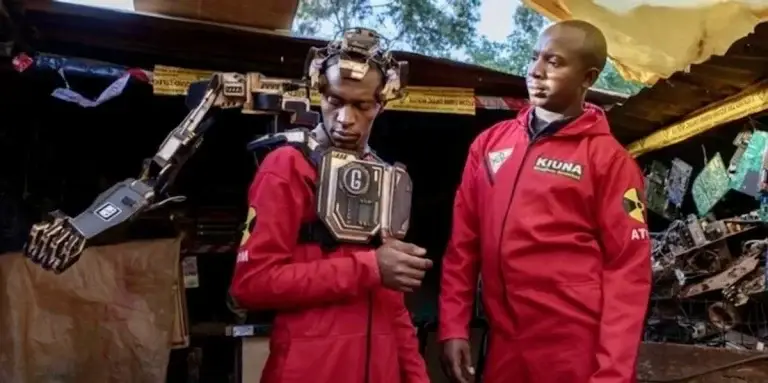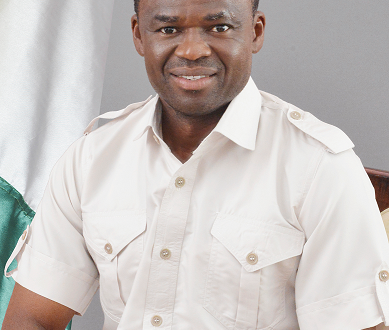Headline
Coup: ECOWAS Suspends Burkina Faso
Published
2 years agoon
By
Editor
The Economic Community of West African States (ECOWAS) has suspended Burkina Faso from its governing bodies, following the coup d’etat carried out late Sunday that toppled the democratically elected government of President Roch Kabore.
The Authority of ECOWAS Heads of State and Government made the resolution on Friday at the end of its virtual Extraordinary Summit on the situation in Burkina Faso.
The resolutions of the ECOWAS Presidents is contained in a communique issued at the end of the virtual summit made available to journalists on Friday.
The ECOWAS Presidents, who strongly condemned the coup d’état, frowned at the resurgence of coup d’états in Member Countries, adding that ECOWAS will no longer tolerate acceding power through unconstitutional means.
The communique stated that “the Authority, during deliberations, strongly condemns the coup d’etat and expresses deep concern over the resurgence of military coups in the region.
“Following the coup d’etats in Mali on Aug. 18, 2020, in Guinea on Sept. 5, 2021, and in Burkina Faso on 24 January 2022.
READ ALSO: Group Roots For Tinubu, Says He Will Hand Over To Youths
“The coup d’etat in Burkina Faso was organised by obtaining the resignation of President Roch Marc Christian Kabore under duress.
“The Authority reaffirms its resolute commitment to upholding the zero tolerance for acceding power through unconstitutional means as enshrined in the 2001 ECOWAS Supplementary Protocol on Democracy and Good governance and decides as follows:
“The leadership demands the immediate release and protection of President Roch Marc Christian KABORE and all the other political detainees;
“They also decides to suspend Burkina Faso from all ECOWAS Institutions; Demands the quick restoration of constitutional order by the militaries and urges them to remain republican by focusing on the role of safeguarding the territorial integrity of the country.
“Instructs the Committee of Chiefs of Defence Staff (CCDS) to immediately deploy a delegation to Burkina Faso to hold consultations with the military leaders.
“To carry out an assessment of the security situation in the country and submit a report to be reviewed by the Authority of Heads of State and Government.
“The meeting further instructs the Commission to facilitate the deployment of a joint ECOWAS Ministerial Mission to Burkina Faso, led by the Chairperson of Council of Ministers on Jan. 31.
“To assess the political situation and submit their report to the Authority of Heads of State and Government. The United Nations Special Representative to West Africa and Sahel and the African Union will participate in this mission.”
Following reports on the recent developments on the political situations in the Republic of Mali and the Republic of Guinea, the Authority requested the Commission to finalise the on-going revision of the Protocol on Democracy and good governance.
The Authority also decided to convene an Extraordinary Summit on Feb. 3 in Accra, Ghana, to re-examine the situation in Burkina, Guinea and Mali.
The Heads of State and Government took note of the Memorandum on the political situation in Burkina Faso presented by President of the ECOWAS Commission, Jean-Claude Brou.
They commended the quality of the report and took note of the recommendations contained therein.
READ ALSO: U.S. Pledges To Support Nigeria’s Fight Against Modern-day Slavery
The News Agency of Nigeria (NAN) reports that the Burkinabe army on Jan. 24 arrested the 64-year-old President Marc Kabore and later at night announced that his government had been deposed.
Kabore was elected in 2015 following a popular revolt that forced out strongman Blaise Compaore and he was re-elected in 2020
The coup leader, Lt.-Col. Paul-Henri Damiba, said on Thursday that Burkina Faso would return to constitutional order “when the conditions are right.”
(NAN)
You may like
Headline
How Two Kenyan School Dropouts Made Prosthetic Arms For People With Disabilities
Published
6 hours agoon
May 2, 2024By
Editor
Two young Kenyan inventors have invented bio-robotic prosthetic arms from waste materials to help improve the lives of the physically challenged people in 2021.
Both David Gathu and Moses Kiuna were at the age of 29 when they designed a bio-robotic prosthetic arm in helping the people that have lost their limbs.
Recounting their ordeal before venturing into the invention, the duo said they were forced to drop out of college because of the expensive school fees but did not let the challenges steal their vision.
Gathu and Kiuna accomplished their dream to help their communities in a workshop in Kiambu county in Kikuyu, Kenya, north of the capital Nairobi.
READ ALSO: 14-year-old Boy Killed In London Sword Attack
According to Face to Face Africa, the workshop was basically a shed made out of worn-out rusted iron sheets standing next to a chicken coop.
The floor was covered with gravel, making the ground outside the shop and the interior all but indistinguishable, as brown broken glass with tape all around fits the window frame.
Brain signal bio-robotic arm
Another significant thing about the invention was being the world’s first bio-robotic arm operated by brain signals. The invention, which is controlled by brain signals, has been billed as a game-changer in the lives of disabled people in Kenya.
Gathu and Kinyua’s invention was unique and different from most prosthetic technology which is powered by a person’s muscles.
READ ALSO: Woman Reveals Secret To Longevity As She Celebrates 106th Birthday
The arm works by converting brain signals into an electric current by a “NeuroNode” biopotential headset receiver. NeuroNode biopotential was originally invented to help people suffering from paralysis and speech loss.
Also, the inventors narrated that the idea to develop an electronic prosthetic came to them during the pandemic as part of their contribution towards assisting Kenya to battle the pandemic. It was initially created to help COVID-19 sanitisation efforts.
“When the virus hit our country, we decided to create a machine that could help us decontaminate surfaces. It can also be used in schools, restaurants, hospitals,” Shoppe Black quotes Kinyua as saying.
Using waste products
According to a report by Anadolu Agency, the Kenyan inventors solved two problems with their innovations, first, by using waste products to make the environment clean and safe, and helping a community of people living with disabilities.
READ ALSO: Popular Iraqi TikToker Umm Fahad Gunned Down Outside Baghdad Home
“People throw away a lot of things that are harmful to the environment just because they don’t work. If they don’t work, it might be just one component that’s faulty but all the other components still work and can be recycled,” Gathu said.
“We’ve recycled everything that you see here. They throw it away, we pick it up and use it. This has saved us from spending a lot of money because we’re not backed up financially by anyone to come up with our innovations.”
They picked up “junk” that people threw away – things like plastic, rubber, wiring, old computer motherboards, LED lights, USB devices, switches, optical drives, heat sinks, fans, and power supply units – components that they say could be quite expensive to purchase from a shop.
Helping the community
READ ALSO: UK-based Nigerian Doctor Loses Licences Over Sex For Free Botox Injections
Speaking about the physically challenged people, he said, “The main reason we came up with this is to help people in our community who have lost their limbs. We don’t want these people to feel like they can’t do anything, we want them to be dependent on themselves.”
The arm can do many more tasks. They say they are still perfecting their device, but lack of funds has been a challenge.
David Mathenge from the Association for the Physically Disabled of Kenya (APDK), a charity NGO, says: “Such inventions are the future of the science of artificial limbs. This is the science we need to ease the challenges people with disabilities face.”
Headline
Obesity’: Father Forced 6-year-old To Run On Treadmill, Son Dies [VIDEO]
Published
19 hours agoon
May 2, 2024By
Editor
A disturbing video has emerged showing an accused “killer” father forcing his 6-year-old son to run on a treadmill because the child was “too fat”.
Christopher Gregor, 31, appeared in court Tuesday, April 30 to stand trial for allegedly murdering his son Corey Micciolo in 2021. He faces life in prison if convicted.
During the trial, the Superior Court in New Jersey was shown surveillance video of Gregor forcing Corey to run on a treadmill after the boy fell off multiple times due to the exercise machine’s excessive speed.
Gregor and his son were seen on March 20, 2021, entering the Atlantic Heights Clubhouse fitness center, where the boy was promptly placed on the treadmill and began running, according to a video, obtained by CourtTV.com.
READ ALSO: 14-year-old British-Nigerian’s Death Raises Renewed Concerns Over Knife Violence In London
Footage captured Gregor walking up to the treadmill to increase the speed and raise the incline of the track.
The sudden changes in speed and elevation were too much for the little boy’s legs, causing him to fall down and slide off the moving track.
Despite the son falling off, Gregor lifted and tossed him back onto the treadmill, which forced the child’s legs to fold backwards as the father seemingly clamped his teeth into Corey’s head.
The boy gets back on, but again falls off and continues to struggle to remain on the machine, eventually leading the father to decrease both the the speed and incline.
The boy’s mother, Bre Micciolo, was the first witness to take the stand and was in tears as she watched the horrific video.
READ ALSO: Super Eagles Stars, Calvin Bassey And Alex Iwobi Caught On Camera Shopping Together In London
Days before her son’s death, Bre Micciolo reported the boy’s injuries to the New Jersey Division of Child Protection and Permanency, according to the US Sun.
On April 1, she requested that Gregor take their son to see a doctor.
While at the appointment, Corey reportedly revealed his father made him run on the treadmill “because he was too fat,” the outlet reported.
The next day, Gregor rushed the young boy to the hospital because the boy woke up from a nap stumbling, slurring his words, and experiencing nausea and shortness of breath, according to Court TV.
During a CT scan, Corey suffered a seizure, forcing medical staff to take life-saving measures, but he died.
An initial autopsy found Corey died as a result of blunt force injuries with cardiac and liver contusions with acute inflammation and sepsis.
READ ALSO: Super Falcons Goalie, Nnadozie Wins Best Goalkeeper Award In France
Gregor was arrested in July 2021 on child neglect charges stemming from investigators reviewing the surveillance footage from the fitness center.
“Specifically by having (Corey) run on a treadmill and increasing the speed, causing (Corey) to fall, placing (him) back on the moving treadmill while appearing to bite his head, causing the said child to fall several more times,” an arrest warrant obtained by the outlet read.
In September 2021, a forensic pathologist determined Corey’s death to be a homicide as he suffered from chronic abuse including blunt impact injuries on his chest and abdomen with a laceration on his heart, left pulmonary contusion, and laceration and contusion of his liver.
Dr Thomas Andrew believes Corey suffered an acute traumatic injury to the heart four to 12 hours before his death, according to Court TV.
Gregor was arrested on March 9, 2022, for his son’s death but turned down a 30-year plea deal.
He is being held in the New Jersey Jail without bond.
NEW: Mother breaks down in court as she watches her son’s father abuse her child by making him run on the treadmill because he was “too fat.”
New Jersey father Christopher Gregor is accused of killing his 6-year-old son Corey Micciolo.
New footage shows the boy repeatedly face… pic.twitter.com/aVKknkOGd5
— Collin Rugg (@CollinRugg) May 1, 2024
Advertisement
Headline
14-year-old British-Nigerian’s Death Raises Renewed Concerns Over Knife Violence In London
Published
19 hours agoon
May 2, 2024By
Editor
The recent sword attack in Hainault, a suburban area in northeast London, has sparked renewed discussions about the ongoing issue of knife crime in the UK, particularly in the capital.
The young victim of the attack has been identified as Daniel Anjorin, a 14-year-old boy.
The Times reports that Anjorin, the son of a science teacher, went to school with Grace O’Malley-Kumar, the Nottingham knife-attack victim.
According to recent data from the Office for National Statistics, reported by Sky News, there has been a 7% rise in knife crime from December 2022 to December 2023. Over the past decade, there has been a significant 81% increase in this type of crime.
READ ALSO: Updated: 14-year-old British-Nigerian Boy Killed By Sword-wielding Man In London
Knife-related crime rates in London and the West Midlands are among the highest in England and Wales.
The number of knife-related crimes reported by the Met Police increased by 20% between 2022 and 2023, while in the West Midlands, there was an 8% rise.
In 2023, London saw a concerning 30% of knife-related crimes, amounting to 165 incidents per 100,000 people.
Meanwhile, the West Midlands recorded a slightly lower rate of 118 incidents per 100,000.
READ ALSO: LIST: Nigerian Passport Ranked Among Worst Globally
For both male and female victims, sharp objects such as kitchen knives, swords, and machetes accounted for two-fifths of all killings in the United Kingdom in the year ending in March 2023.
While the recent attack involved the use of a sword, statistics from the Home Office indicate that such incidents are relatively rare in cases of fatal stabbings.
Although the attacker employed a sword in yesterday’s incident, it contributed to only three fatalities involving sharp objects in 2023.
Faron Paul, leader of Faz Amnesty, an organisation facilitating the surrender of weapons by children to the police, expressed at the scene of the blockade that authorities are not sufficiently addressing the prevention of knife crime.
READ ALSO: [UPDATED] London Sword Attack: Suspect Under Police Custody After Hospital Recovery
Speaking with the BBC, he said, “It’s not rising. It’s gone through the roof. We’ve got a big problem here. Children are dying on the street every single day. You’ve got a problem. And I don’t feel like the right things are being put in place to prevent, deter or stop knife crime.”
He added that it wasn’t just the area but “the whole of London has a problem.”
“We need to have better consequences and laws in place. We need to stop buying and selling illegal weapons online. And then we need to think about preventative measures.”

EFCC Chairman Narrates How 17-year-old Hacked His Computer, Bank Account

Uganda President, Museveni Blasts Western Countries, Says ‘You Fund Seminars But Won’t Aid Manufacturing In Africa

Naira Abuse: EFCC, Cubana Chief Priest To Settle Out Of Court
Trending

 Politics1 day ago
Politics1 day agoWhy Candidate Who Needs Interpreter Can’t Be Edo Gov – Shaibu

 Metro4 days ago
Metro4 days agoEdo Police Arrest Suspected Cultists Who Allegedly Killed Rival In His Daughter’s Presence

 News4 days ago
News4 days agoJUST IN: Popular Gospel Singer Is Dead

 Business2 days ago
Business2 days agoCustomers Panic As CBN Bans Opay, Palmpay, Others’ New Accounts

 News5 days ago
News5 days agoUNIBEN Ex-deputy VC Is Dead

 News5 days ago
News5 days agoOba Of Benin Suspends Six Officials For Posing As Palace Emissaries To Ooni Of Ife

 News23 hours ago
News23 hours agoEx-policeman Who filmed Wife Having Wex With Her Superior Found Guilty Of Stalking

 News3 days ago
News3 days agoOoni: Suspended Benin Palace Functionaries Banished

 News2 days ago
News2 days agoJUST IN: FG Approves Salary Increase For Civil Servants

 Metro4 days ago
Metro4 days agoGunmen Assassinate Governor Aiyedatiwa’s Campaign Coordinator In Ondo























